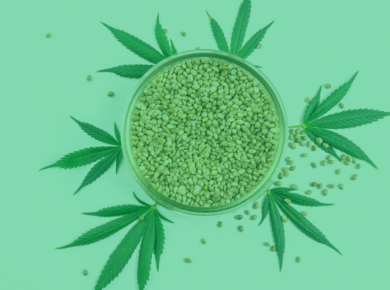Overcoming Moravec’s Paradox, conceived by Dr. Hans Moravec, noted roboticist, is the main challenge to roboticization of not just cannabis cultivation but the whole of agriculture. This paradox says that which robots do easily, humans find hard and visa versa. For example, robots have been assembling cars for decades, a process requiring rapid, repetitive and precise motions far beyond the ability of humans. Likewise, computers process enormous, mind-blowingly complex volumes of data with a speed no humans could match.
Paradoxically, a teenager with just a few hours training can pilot an automobile, while the latest autonomous vehicles, armed with vast amounts of processing power, arrays of expensive sensors, the latest algorithms and huge amounts of data are only beginning to manage, in limited ways, with tight controls. In fact, the simple act of gently, carefully picking a single bud from a plant would be very hard for the most advanced robots, at least until now.
Create Your Kush.com Account Today >>
Yet, robots have been in agriculture for decades, doing everything from taking aerial images of crop fields and milking cows to automatically harvesting crops and driving tractors. In fact, projections show the ag-robot market will grow from $7B now to over $20B by 2025 in the US alone, reflecting a compound annual growth rate of over 23 percent! Various forces are driving this growth, including declines in skilled labor and the new affordability of previously pricey technologies like drones and GPS enabled sensors.
However, another subtler, powerful force is taking Dr. Moravec’s paradox head on: deep learning. A ‘farm,’ whether it be a grow or vast vineyard on a stepped slope, is a dynamic, demanding and complex environment, even for experienced professionals. Now ask a machine to quickly, automatically and autonomously make their way around such an environment and, say, check the buds for infestation or pick some grapes – all the while not damaging a single plant or breaking anything, for that matter – and you’re asking a lot right now. However, recent advances in computer science and robotics is making that ‘ask’ more real.

Artificial intelligence and its sub-disciplines of deep learning, in particular, have given machines the ability to perceive and ‘know’ exactly where they are, what they’re looking for and what they’re looking for. In effect, do all of the human tasks you and I take for granted and are essential tasks in a grow, like efficiently moving around in a crowded space, knowing the difference between a translucent trichome and mature, amber trichome and/or gently picking a single grape from a cluster on a vine. All these actions and more are now possible and will soon come from a myriad number of startups and big companies alike within the next five years.
Create Your Kush.com Account Today >>
Deep learning can take streams of data inputs, whether the data source is from spinning lazars, infrared sensors, cameras, or even some combination of all of the above and interpret and recommend, just as a trained professional would. In effect, we’re at the stage where, if you can ‘see it and interpret it,’ in every sense of that phrase, a robot can too. The implications of this are just being felt not just in cannabis and agriculture but a wide variety of industries. The great news is these new ‘perceiving robotics’ will make cannabis cultivation more consistent, at a lower cost and with a higher quality. By the way, is will also help us humans feed the additional three billion humans we will be adding to the world population in the coming decade.

Mark F. DeSantis, CEO, Bloomfield Robotics
C: 412.414.5003
E: mark@bloomfield.ai | bloomfield.ai
Mark is a serial tech entrepreneur and is CEO of Bloomfield Robotics, a company that uses deep learning to assess plants. He was previously cofounder and CEO RoadBotics, an AI platform for assessing roads and roadways infrastructure. Prior to that, he was cofounder and Executive Chairman of kWantix, a quant hedge fund, cofounder and CEO of kWantera, a GE Ventures-backed energy trading company and CEO of Think Through Learning, a venture-backed online tutoring company and US Managing Director of ANGLE Technology, PLC, a UK-based venture capital firm and consultancy. Earlier in his career, Mark held policy positions as a Senior Policy Analyst in The White House Office of Science and Technology Policy in the Administration of George H. W. Bush. He was also staff assistant to late U.S. Senator John Heinz was a management consultant with Booz Allen. Mark has a dual appointment as an Adjunct Professor in both Heinz College and the College of Engineering at Carnegie Mellon University. He has lectured at Princeton University and Dartmouth College and was an Adjunct Professor at the University of Maryland and holds a BA, MS, MBA and PhD.



